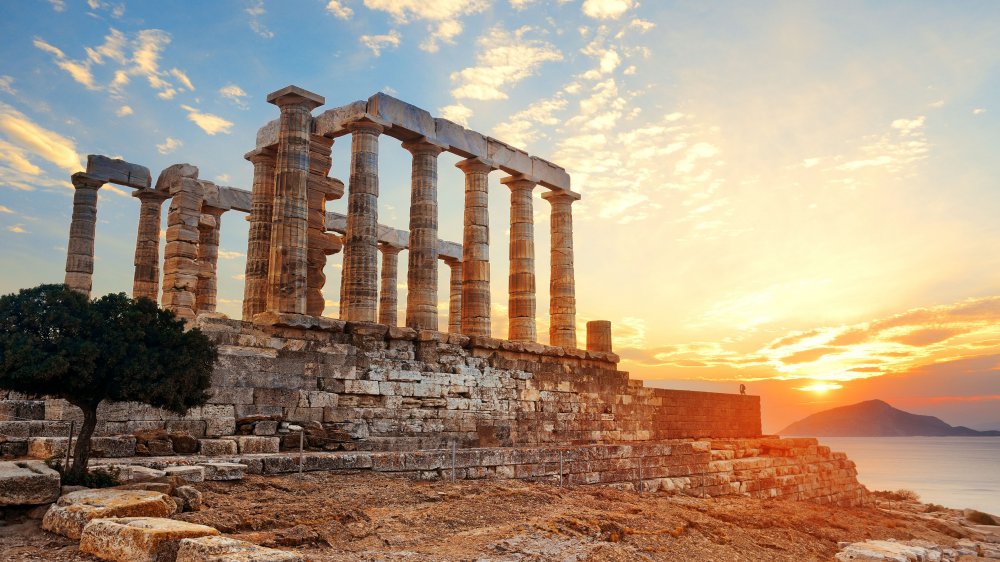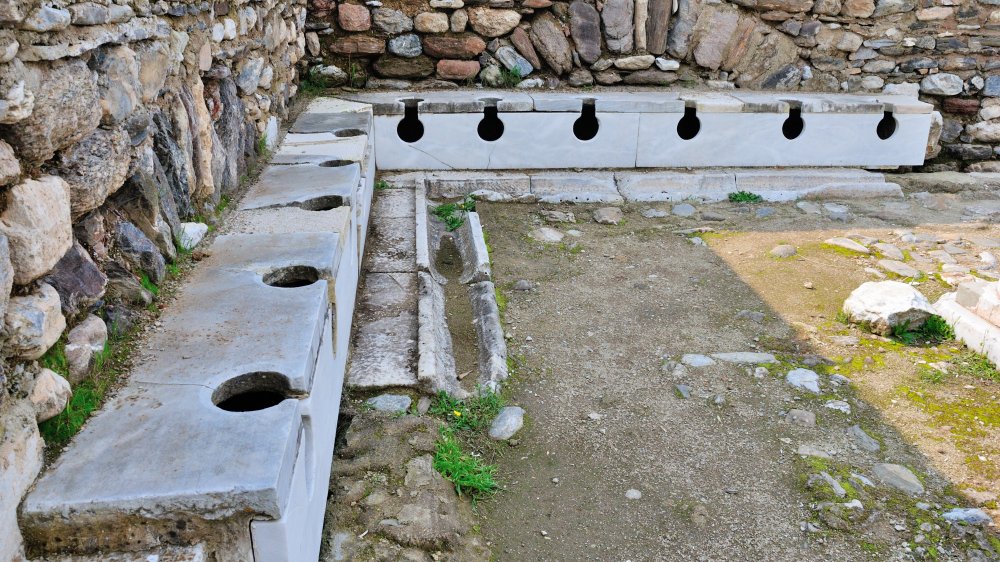The Strange Way People In Ancient Rome And Greece Tried To Get Back At Their Enemies
When it comes to ancient cultures, few had the number of enemies that the Ancient Greeks and Romans had. As some of the largest and most widespread western empires for the majority of recorded history, it doesn't come as much surprise. The Romans marched their way across Europe to expand their territory. Different Greek states have warred into Asia when they weren't fighting for centuries among themselves. And, when you're constantly waging war, people don't like you very much.
With a multitude of enemies and no television to distract themselves, the Ancient Romans and Greeks had ample reason to invent interesting, creative, and sometimes impractical ways of getting back at all of the opposition they created for themselves. It didn't matter if these enemies were at home or abroad. These folks wanted revenge, no matter how petty. Some might say they could've used a bit of distraction, but much of their distraction (think gladiator fights) was competitive or a form of punishment against — you guessed it — their enemies. From curses to enslavement to the downright weird, the Ancient Greco-Romans had it all. And, one of these revenge methods was certainly as strange as they come: using the enemies' names as toilet paper.
Well, we shouldn't say toilet paper exactly. Anthropologists currently believe that Ancient Roman and Greek folk probably didn't take down forests to make a rough, olden-day single ply.
It was less than respectful
Just like us, they liked to clean themselves after using a toilet, but unlike us, they liked to re-use the utensil in question — or so one of the primary theories on the subject states, according to Italy Magazine. Anthropologists have been finding flat stones and terracotta disks that they believe were used to scrape Greco-Roman bottoms clean after a bowel movement. To most of us, this might sound as esoteric as the three seashells from the 1993 Sylvester Stallone film Demolition Man. It doesn't sound like the most sanitary personal hygiene product in the world, but at least they were saving trees for more productive things like the spears and chariots they used to take over the majority of the known world at the time.
These stones, which are officially called pessoi, also served another important function: giving their enemies the figurative middle-finger. Masses would gather periodically in the Ancient Greco-Roman world to cast unwanted jerks out their communities, and they did this by writing names on fragments of ceramics, known as ostraca, and casting votes. It's believed, according to Scientific American, that these ostraca would later be used as pessoi. Basically, they'd risk serious anal damage from these potentially sharp shards just for the chance to wipe themselves with their enemies' names in an act that can only be described as "metal."

